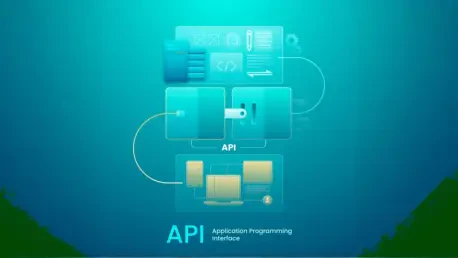In the rapidly evolving digital landscape, the seamless integration of systems and processes has become paramount for businesses worldwide. The introduction of IBM’s API Agent in its API Connect platform reflects a significant progression in the realm of API management. This cutting-edge intelligence tool is strategically designed to address the growing complexities organizations face as they embrace AI-enabled environments. By facilitating the efficient construction, administration, and scaling of Application Programming Interfaces (APIs) tailored for AI-driven processes, the API Agent marks the advent of what is being referred to as the ‘Agentic era.’ With the enterprise landscape increasingly relying on AI agents, the demand for more intuitive, adaptive, and effective API management systems has risen. IBM’s API Agent emerges as a solution that adequately addresses these needs.
Enhancing API Development with AI Intelligence
Addressing the Evolving Needs of API Teams
IBM’s API Agent ushers in a new era for API teams by offering an intelligent assistant that is expertly trained on the API Connect platform. It is uniquely capable of comprehending an organization’s API architecture and responding to natural language commands. This critical functionality transforms such prompts into fully governed and production-ready APIs, seamlessly fitting into existing workflows. By adopting this technology, companies are experiencing swifter delivery cycles while simultaneously ensuring compliance with governance policies. The API Agent significantly diminishes manual workloads, enhancing governance without the risk of human error. Teams are afforded the flexibility to focus more acutely on innovation and strategic initiatives rather than being bogged down by repetitive, manual tasks.
Streamlining API Management Processes
Integrating IBM’s API Agent provides companies with a remarkable boost in productivity, expediting the time to first API creation thanks to its robust automated scaffolding. Enterprises now enjoy a more efficient journey—from ideation to deployment—through built-in test generation. This improvement reduces the complexity traditionally associated with API development. Feedback from initial users has consistently highlighted the ability of the API Agent to minimize operational intricacies while accelerating the production of well-governed APIs. The emphasis on consistency and streamlining has led to a substantial reduction in both time and resources needed for deployment, reducing potential bottlenecks that have plagued businesses in the past.
Simplified Deployment and Lifecycle Management
The Power of Automated Code Deployment
One of the standout enhancements introduced with the general availability of the API Agent is its capability for code deployment. This feature empowers users to execute microservice deployments directly to an IBM Code Engine instance autonomously, eliminating the laborious setup processes traditionally involved. Once deployment is completed, the Agent proficiently manages the various stages of the lifecycle by publishing the APIs into API Connect. This functionality not only reinforces the strategic emphasis on automation but also positions AI agents as crucial players in performing user actions across various domains. The technology’s ability to handle multiple responsibilities once solely managed by human operators underscores its transformative potential.
Ensuring API Governance and Discoverability
The increasing integration of AI agents across different business spheres demands a robust system for API governance and discoverability. IBM’s API Agent meets this challenge head-on by ensuring that APIs remain discoverable, reusable, and well-governed. The tool conducts exhaustive checks of existing API catalogs to prevent duplication and manage proliferation efficiently. This alignment with company standards curtails unnecessary API sprawl, maintaining a streamlined approach essential in preserving organizational coherence. The presence of such an accountable system allows businesses to stay in control while harnessing the full capabilities of their API ecosystem—a necessity as varied sectors adopt AI-powered solutions in routine operations.
A Foundation for Innovation in the Digital Economy
A Strategic Shift Toward AI-Driven Solutions
IBM’s API Agent represents more than a technological upgrade; it fosters strategic innovation within development teams by eliminating the drag of routine, repetitive tasks. Now available to all clients on the API Connect platform, its introduction enables organizations to move beyond simple automation. The API Agent supports a journey toward an AI-powered future, where creative focus and strategic development are prioritized over mundane responsibilities. With this tool forming a crucial part of their tech arsenal, companies gain a distinct advantage in ensuring equilibrium between cutting-edge innovation and stringent governance, paving the way for future advancements in a dynamically evolving digital environment.
Future Prospects and Considerations
Integrating IBM’s API Agent offers businesses a significant productivity boost by accelerating the time to first API launch, largely due to its robust automated scaffolding. This technology streamlines the entire process from ideation to deployment, thanks to its built-in test generation, which simplifies what has traditionally been a complex development journey. Early feedback from users consistently highlights the API Agent’s ability to reduce operational complexity while accelerating the creation of high-quality, well-governed APIs. This focus on efficiency and streamlining leads to a significant decrease in both time and resources required for API deployment, effectively eliminating potential bottlenecks that have historically challenged enterprises. By providing a more consistent and efficient development process, the API Agent allows companies to focus more on innovation and value creation rather than getting bogged down by the intricacies of API management and development, thus contributing to a more agile technology landscape for businesses.









